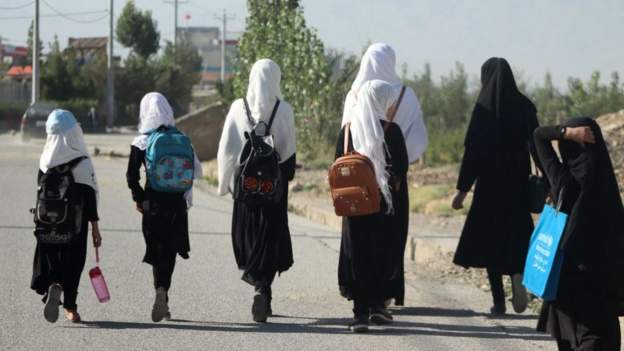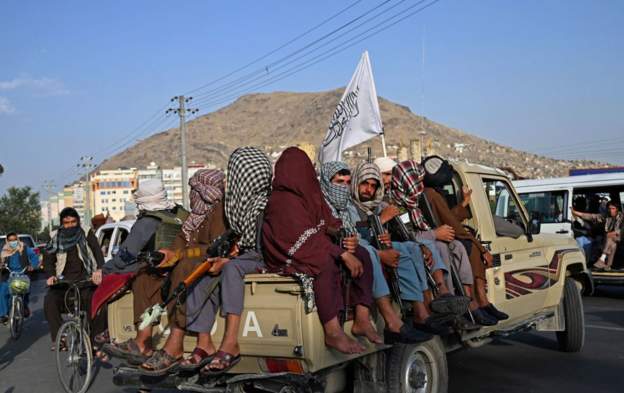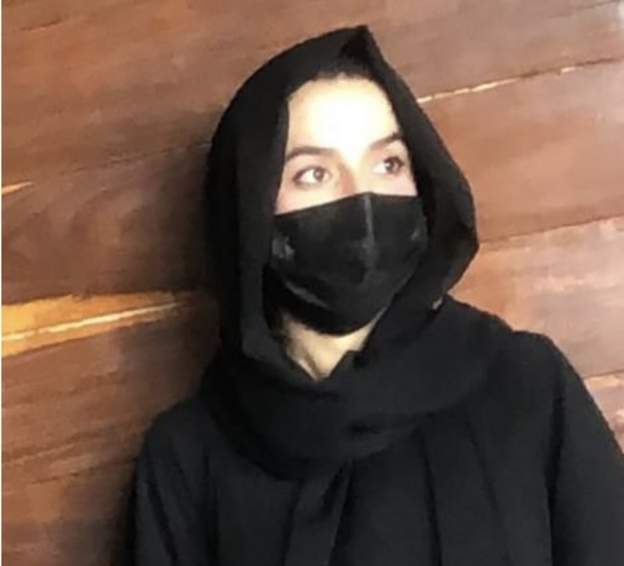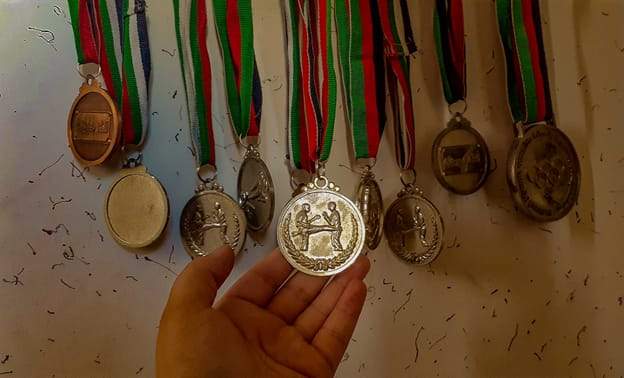Everything has changed':Afghan women's hidden lives under the Taliban
Since seizing power in 2021 the Islamic movement has restricted women's lives closing most secondary school to girls. WOmen have been banned from going to university, stopped from entering parks and gyms and must observe strict dress codes About half the populationface acute hunger and 97% are in poverty but in December the Taliban alsobanned female aid workers from doing their jobs
A psychologistand a secret school for girls

Let’s hear now from a psychologist who is also a teacher at asecret school for girls which has sprung up in defiance of the Taliban.
Two days a week, she teaches classes packed with 70 students who want to learn - theyoungest is 10 and the eldest 20. She also holds private therapy sessions with them and their families.
TheTaliban have closed most secondary schools to girls and banned female students from universities.
This secret teacher sent us voice notes in English, describing how her day was going as she prepared to teach young women about resilience.
Staywith us as we bring you her story.
Who are theTaliban?

So as we know, the Taliban now run Afghanistan’s government -but how did they get to that position? Here’s a quick reminder.
The Islamist group retook control of Afghanistan in 2021, two decades after being removed from power by a US-led military coalition.
They then advanced rapidly across the country, seizing province after provincebefore taking the capital Kabul on 15 August that year, as the Afghan military collapsed.
Foreign forces, who had agreed to leave, were stunned by the speed of the advance and had to accelerate their exit. Many Western-backed Afghan government leaders fled, while thousands of their compatriots and foreigners, fearing Taliban rule, scrambled to find room on flights out of the country.
Within weeks, the Taliban were in control of all of Afghanistan - something they had not managed to do in their first stint in power between 1996 and 2001.
More about the women who are sharing their stories
Theycome from a wide variety of backgrounds, and will be sending us accounts oftheir daily lives.
They include:
A student training to be a mid-wife, who also teaches in a madrassa (religious school)
A 19-year-old audiobook narrator from Kabul who has voiced novels, books for children and religious books
A dress maker from a central province in Afghanistan known for her traditional and colourful designs. The woman, who is in her thirties, was the bread winner ofher family, supporting her husband and children, but was asked to shut her business by the Taliban
An aid worker in Badakhshan, one of the poorest and most remote regions of the country. She’s been unable to carry out her work since restrictions were imposed on female aid workers and says it breaks her heart every time someone asks her when they will start getting aid again
A psychologist and a teacher who clandestinely teaches dozens at a secret schoolfor girls
An aspiring writer who runs a book club online A former police officer and university student, who says she’s been in hiding since the takeover in August 2021
A golfer and a karate trainer will tell us how theirlives have changed

Among those we’ll hear from today are:
ShaistaSafi, 30, a former government worker. She is also a golf enthusiast who was amember of the national golf team.
"I miss my job, colleagues, studying, golf,going to restaurants, meeting friends, and my freedom. Sometimes I cry becauseof what I have lost in the last 15 months.”

ShaistaSafi
ShukriaHujjat, 21, a trainer with a black belt in karate and a haul of medals to hername. "Now when I wake upat 5am for praying, and then make breakfast - then, to be honest, I havenothing to do. I am looking for things to busy myself with."












